Our Favorite Siblings in RPGs feature continues with looks at some of our favorite series—including both Trails AND Tales of—and a couple of particularly moving, personal pieces.
Elliot & Fiona Craig – The Legend of Heroes: Trails of Cold Steel Series
Writeup by Audra Bowling
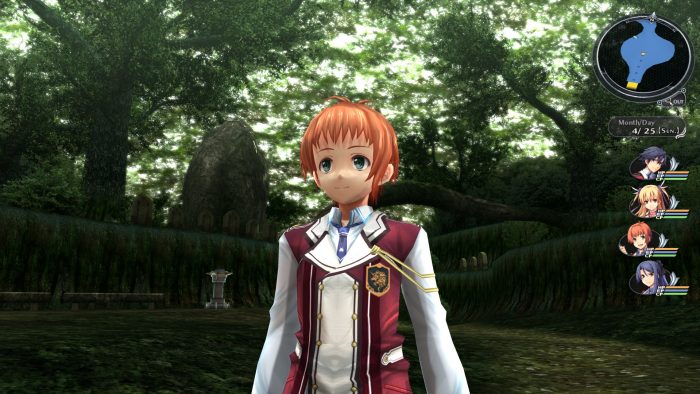
There are wonderful sibling dynamics throughout The Legend of Heroes: Trails… series, though a personal favorite happens to be between Class VII’s Elliot Craig and his older sister Fiona Craig (though one could probably argue that I just love the whole extended Craig family). Fiona and Elliot grew up in a music-loving family with a father who was often away on important military matters. After their mother tragically passed away, Fiona ended up taking on the mantle of “mother” in her stead, helping to look after and raise Elliot. A strong familial bond formed between them as a result, with Fiona much more understanding and supportive of Elliot’s blossoming love of music than their father Olaf initially was. She truly believes that Elliot will become the great musician he’s always aspired to be. Elliot, in turn, cares about Fiona quite a lot, and the two go out of their way to come to one another’s aid whenever there is a need. They support each other separately but also form quite the impressive team when working together. The shared love of music they have makes them both incredibly strong-willed and encouraging siblings. Elliot and Fiona’s interactions and talk of their family always makes me smile.
Devola & Popola – NieR / NieR: Automata
Writeup by Alana Hagues
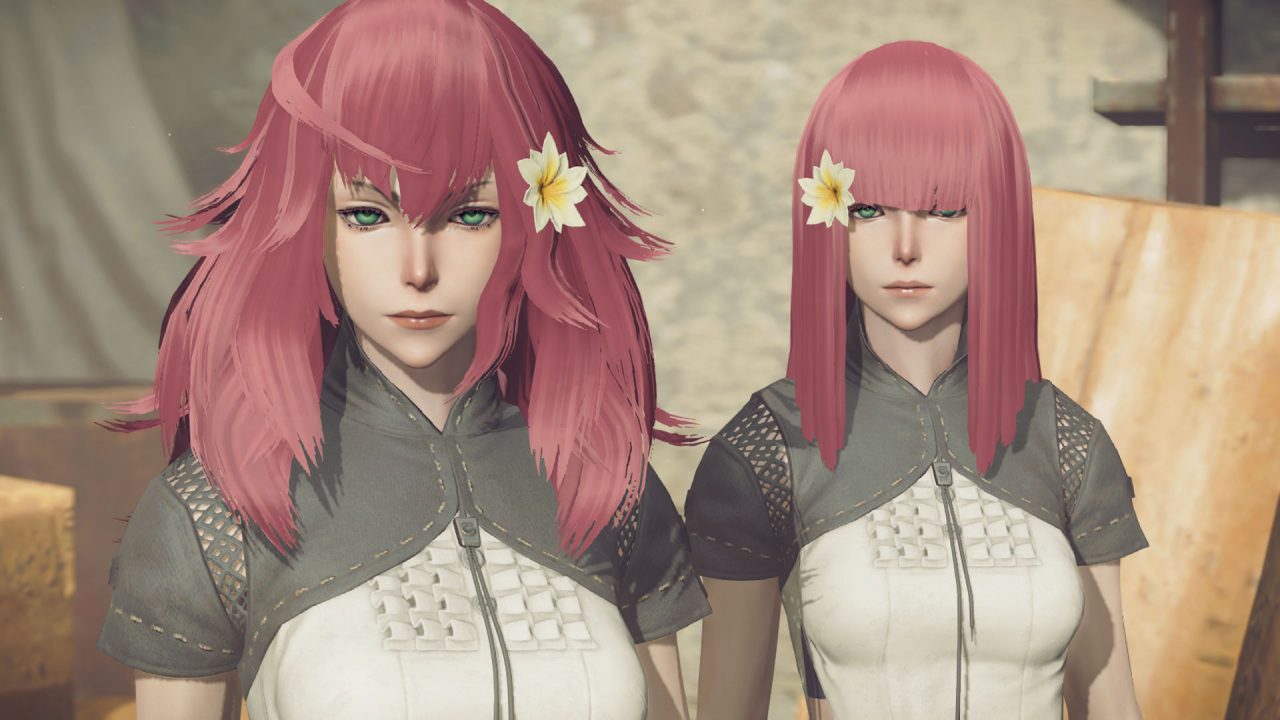
Twin androids Devola and Popola have been reproduced many times since Project Gestalt started, but one thing that has remained consistent is their sisterhood. Despite carrying one of the greatest burdens in the world in NieR, now explored even more in NieR Replicant, these two are always a pair and carry the weight together. The twins act as guides for Nier in the original game, and their contrasting personalities and the respect the villagers hold for them make them incredibly endearing (especially the quiet, bookish Popola’s reputation for being a destructive drunk).
By the events of NieR: Automata, these twin models have been classified as defective. Having played NieR before Automata, I was conflicted but comforted by their presence because they had the same personalities. It’s impossible not to sympathise with them, whether you’ve played NieR or not. The most touching moments come from the story ‘Devola & Popola’s Memories,’ which retells the origins of Project Gestalt but distils the love and devotion the twin androids have for each other beautifully. Every line is infused with Popola’s emotions, and I felt every single inch of the pain and suffering the two have experienced together. Despite the sombre tone, their story ends on a hopeful note (just like the game) and stands as another reminder of how love and empathy are the strongest tools anyone can have, even androids and machines.
Althea & Shea – Tales of Aravorn: Seasons of the Wolf
Writeup by Audra Bowling
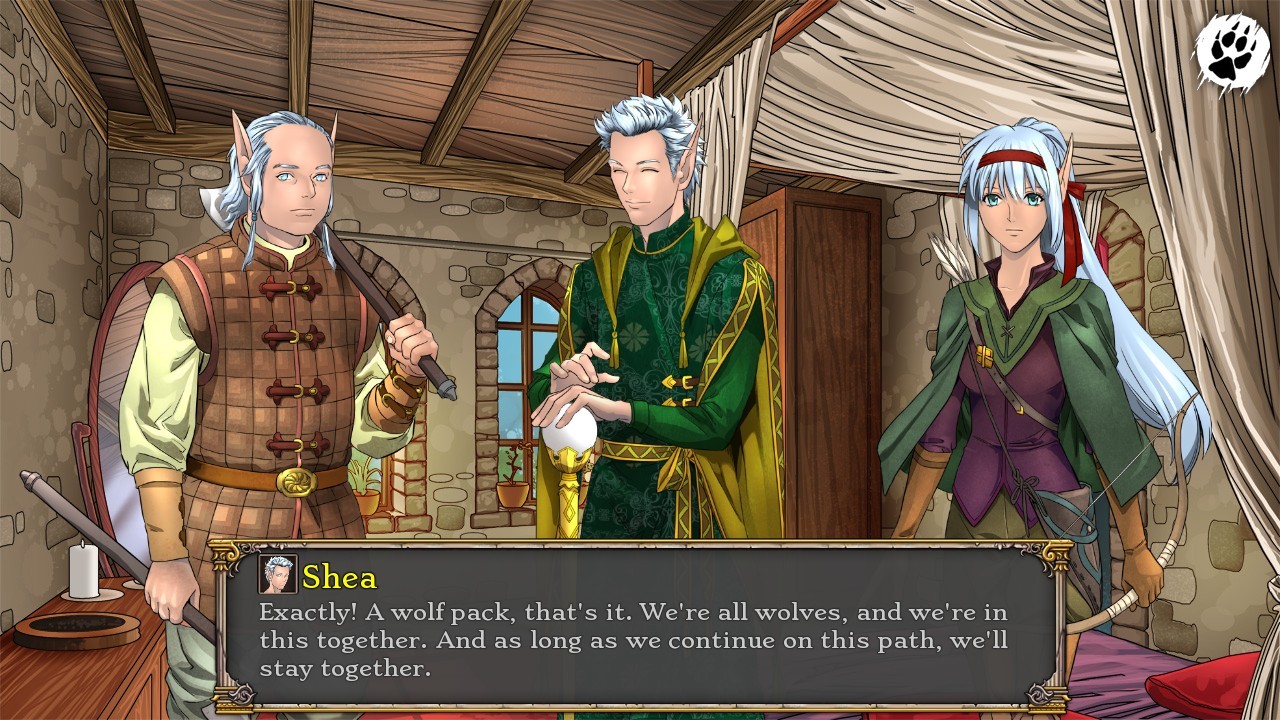
Elven fraternal twins Althea and Shea from Tales of Aravorn: Seasons of the Wolf stand out to me because their familial bond is understated in many respects but ultimately quite strong. Growing up together under the guidance of their father in the snowy, somewhat isolated village of Ninim, their stories take a decidedly different turn depending on who the player chooses as their main character. The player’s chosen character then encounters a wolf cub, and the events stemming from that encounter lead the two siblings to be thrown into slavery. From that point, they must face numerous hardships and acquire steadfast allies to secure their freedom. Of course, things don’t just end there, as a fantastic journey lies in wait for them to uncover. But what truly jumps out to me about their bond is that, despite all their hardships, Althea and Shea remain steadfast supportive figures in each other’s lives. The twin not chosen to be the protagonist remains by their sibling’s side through thick and thin. Even when they become separated in the game’s Bad Blood DLC, they trust the other to do what needs to be done. That says a lot about how much these twins care for one another.
Genis & Raine – Tales of Symphonia
Writeup by Josh Louis
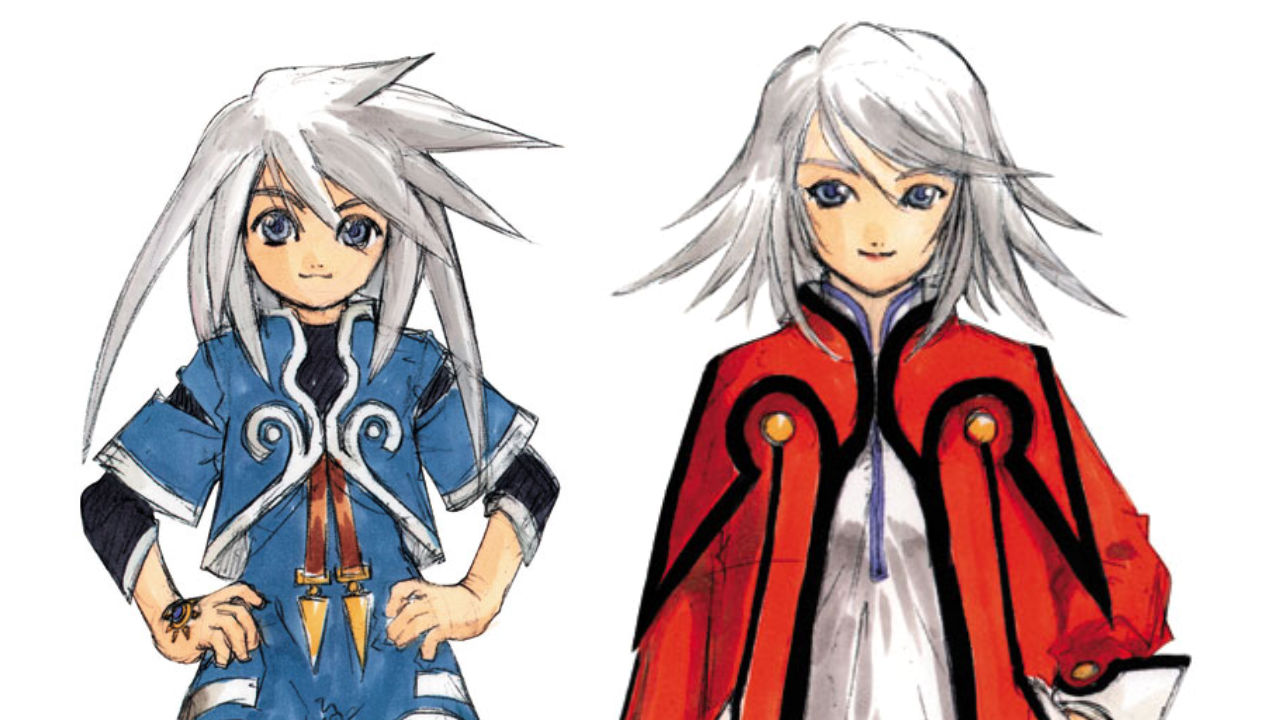
Two of the most interesting playable characters in Tales of Symphonia are Genis and Raine Sage. The former is a good friend of protagonist Lloyd Irving, and the latter is their school teacher. As half-elves, the siblings suffer from racial discrimination, which acts as the impetus for their character development, and is a theme central to the plot of Symphonia. At the beginning of the game, Genis is under the impression that he and his sister are full-blooded elves, a lie told to him by Raine in an attempt to shield him from the discrimination they face in both Sylvarant as well as their home world, Tethe’alla. Genis’s perception of humans shifts from a general fondness to a strong dislike as he experiences countless injustices throughout their journey. Raine also undergoes a transformation of sorts, eventually understanding and accepting the motivation behind why their mother abandoned them.
Besides having surprisingly deep character arcs, Genis and Raine are almost vital in combat (Raine moreso than Genis). Both of the half-elf siblings are magic-based, but they play very different roles. The genius boy has a knack for explosively powerful elemental spells, whereas his sister is the only dedicated healer and support character. While some of the other party members get the odd offensive magic or healing spell, none compare to Genis or Raine in their respective roles.
Also, it’s just insanely fun to get massive combos with their Compound Special Attack, Prism Stars. It never gets old.
Oscar, Boyd, & Rolf – Fire Emblem: Path of Radiance & Radiant Dawn
Writeup by Josh Louis
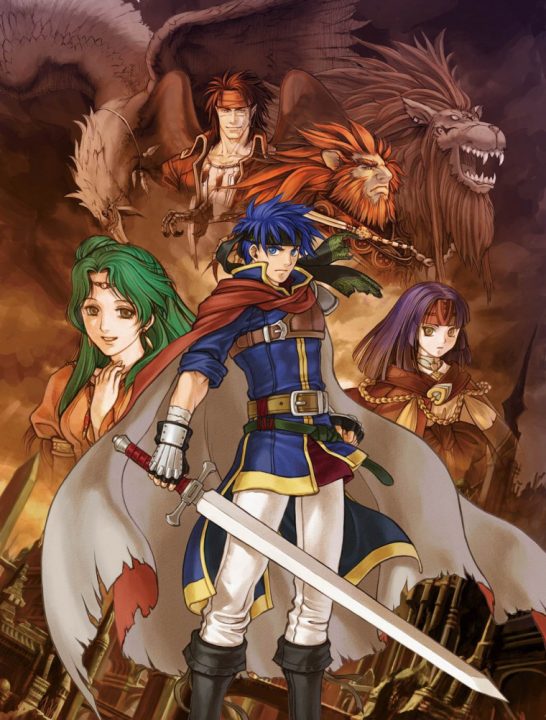
In many ways, the Greil Mercenaries in Fire Emblem: Path of Radiance and Radiant Dawn are one big family. Everyone takes care of one another. Nowhere is this more evident than in the case of Oscar, Boyd, and Rolf. Oscar is a Crimean knight-turned mercenary who was responsible for taking care of his brothers following the death of their father and abandonment by their mother. The brothers were then subsequently taken in by Greil and given a second lease on life. In Radiant Dawn, we get a further glimpse of their family dynamic when half-brother Rolf’s birth mother attempts to persuade him to live with her once again. He refuses and chooses to stay with his true family — his older brothers and the rest of the Greil Mercenaries.
Each of the brothers has their own personality quirks and character traits, and in Path of Radiance, they also each have their own niche in battle. Oscar has decent movement, is one of the few lance wielders in the early game, and he’s the only non-promoted mounted unit for the first dozen or so chapters. Boyd is your only Fighter/Warrior for the entire game and one of the few axe users in the early game, which neas he’s very useful after he gains a few levels. Similarly, Rolf is the only Archer you get for quite some time, but he makes an adequate Sniper with proper training. While Oscar and Boyd are easy enough to use, Rolf can be a pain to level up, so if you do want to use him, he’s a good candidate for all of that juicy bonus experience.
What’s more, similar to the Pegasus Knights in other Fire Emblem titles, these brothers have their own triangle attack if you promote Oscar to a Paladin and give him access to bows. It’s not particularly useful, as bows are generally pretty bad throughout the series, but the novelty is fun, if nothing else.
Lucas & Claus – Mother 3
Writeup by Wes Iliff
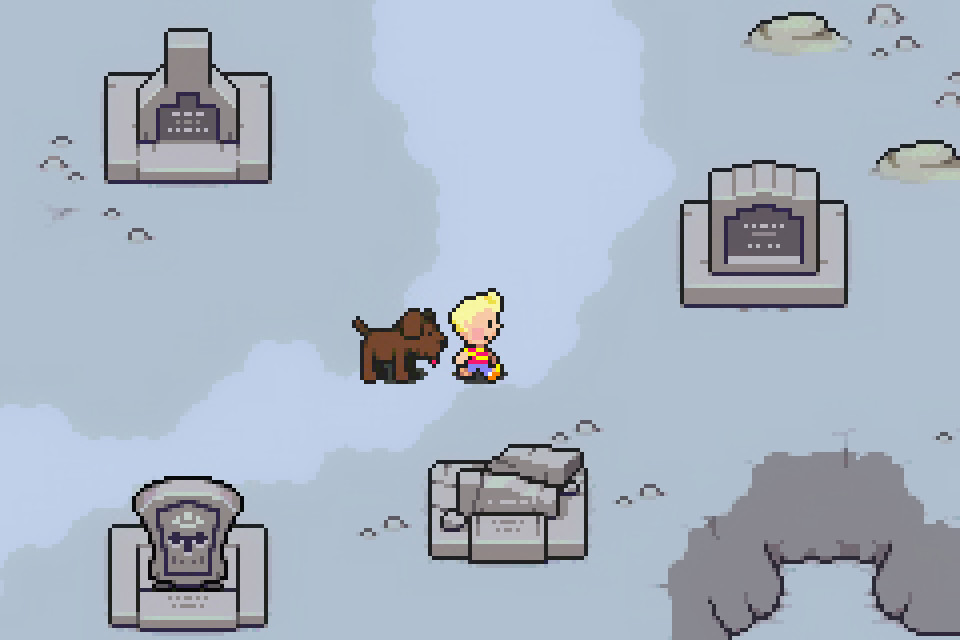
If you check out my online presence, you’ll find a Lucas avatar everywhere you go. It’s not a statement on my love for the series (which I adore), nor do I share much of a likeness with the tender-hearted hero. But what I do share with Lucas is his relationship with his brother, both for good and ill.
At the beginning of Mother 3, Lucas is defined by his sibling relationship. When I first played the game nearly a decade ago, I saw my relationship with my brother reflected in the duo; the timid and anxious younger sibling who tagged along with the bold and courageous older sibling. From their shining personalities, despite Lucas being a (mostly) silent protagonist, to the reliance the brothers formed with each other, like when any siblings find independence from their parents, their relationship attracted me to Lucas in particular. However, it wasn’t until years later, when my own brother was killed, that I realized the narrative truth of the sibling bond between Lucas and Claus.
Much like Lucas loses his brother near the beginning of Mother 3, I lost my brother a few years ago; this made Lucas’ journey stand in more stark relief, showing me a side of grief I rarely see portrayed in any medium. Lucas doesn’t just mourn his brother — time passes by, and Lucas has to figure out how to continue on, and what it means to keep his kind heart and compassion intact when he suddenly finds himself responsible for everything his family left behind. In my case, it was keeping a family together, and in his case, it was saving the world. But the exploration of having to fill the sibling-shaped void while still staying true to yourself has stuck with me ever since because I’ve been there. I’ve seen how difficult that struggle is, but I’ve also seen how dealing with that grief can make you stronger than before. Lucas and Claus have a relationship mostly told through loss and absence, and while the story of Mother 3 progresses well into more fantastic realms, the feeling of loss is deeply familiar in ways both heartbreaking and validating.
Basch & Noah – Final Fantasy XII
Writeup by Quinton O’Connor
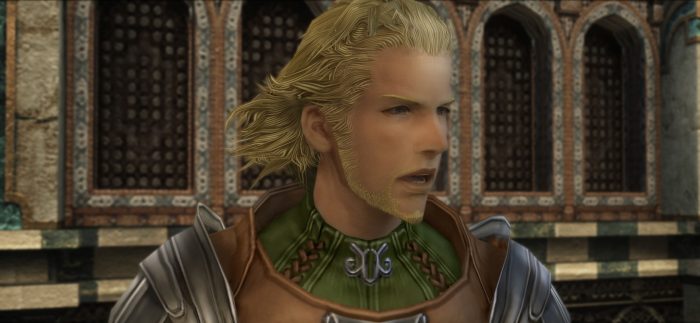
It’s hard not to dive straight into massive spoiler territory when talking about stoic Basch and his estranged brother Noah in Final Fantasy XII. So instead of going into narrative detail, I’ll approach this from another angle: their backstory and the symbolism that follows. The brothers hail from a fallen kingdom, crushed beneath the heel of the Archadian Empire. Years before the beginning of the game, their shared tragedy sets them each on separate paths. One takes a defensive stance against the Empire, and the other embraces a more… Machiavellian approach. Nevertheless, they each rise in their respective worlds, climbing to the top due to a shared strength of will, and — as they ascend — they stage themselves for an inevitable clash.
Basch and Noah are more than “just” brothers; they’re identical twins. And whilst it’s not always true that identical twins are a great deal alike (even beyond their looks), most media tends to depict them that way. Final Fantasy XII is no exception. There is a sameness to the brothers that is only fully understood at the end of the story, as Noah’s beliefs come to light and we, the player, realize that his goals were not so separate from Basch’s. Following their separation, their subsequent years could not be more dissimilar, but the mirror shines both ways. Basch and Noah are two pieces of a shattered whole, after all.
Freyjadour & Lym – Suikoden V
Writeup by Emony Tjan
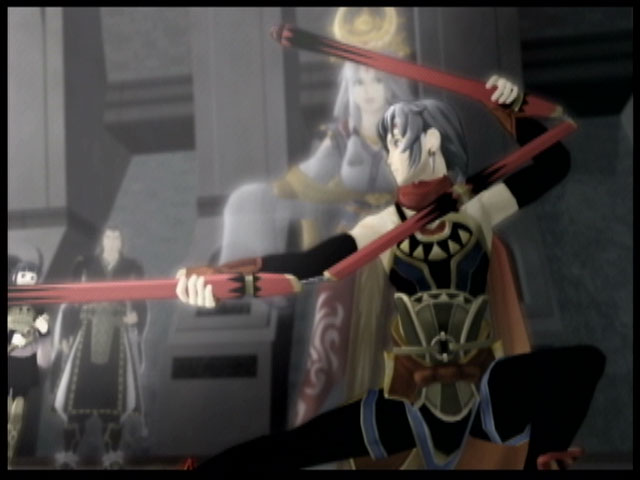
Of all the families in Suikoden V, the relationship between Freyjadour and Lym is one of the most important and heartfelt. While playing off the older brother with a doting little sister trope, the game makes skillful use of that setup to couch its central conflict: the coup against the royal family of Falena and ensuing political upheaval. Lym is concerned with how becoming the next queen of Falena will affect her relationship with Frey, and Frey wants to protect his sister amidst the turmoil plaguing their home.
As a player, I love Lym. She has a gentle but playful personality and is full of sincere love for her brother and concern for the future of her kingdom. The writers for Suikoden V took great pains to make the relationship feel positive but realistic without making it too saccharine. The fact that Lym is one of the first characters you meet and must protect for a time helps cement her place in Freyjadour’s adventure, even if you wind up spending the majority of the game away from her. That distance only makes her more important, as it feels like a real reunion when Freyjadour does get to see her again. It worked up the same kind of worry in me that I might have for a long-unseen relative.
Six Moogle Siblings – Final Fantasy XII
Writeup by Emony Tjan
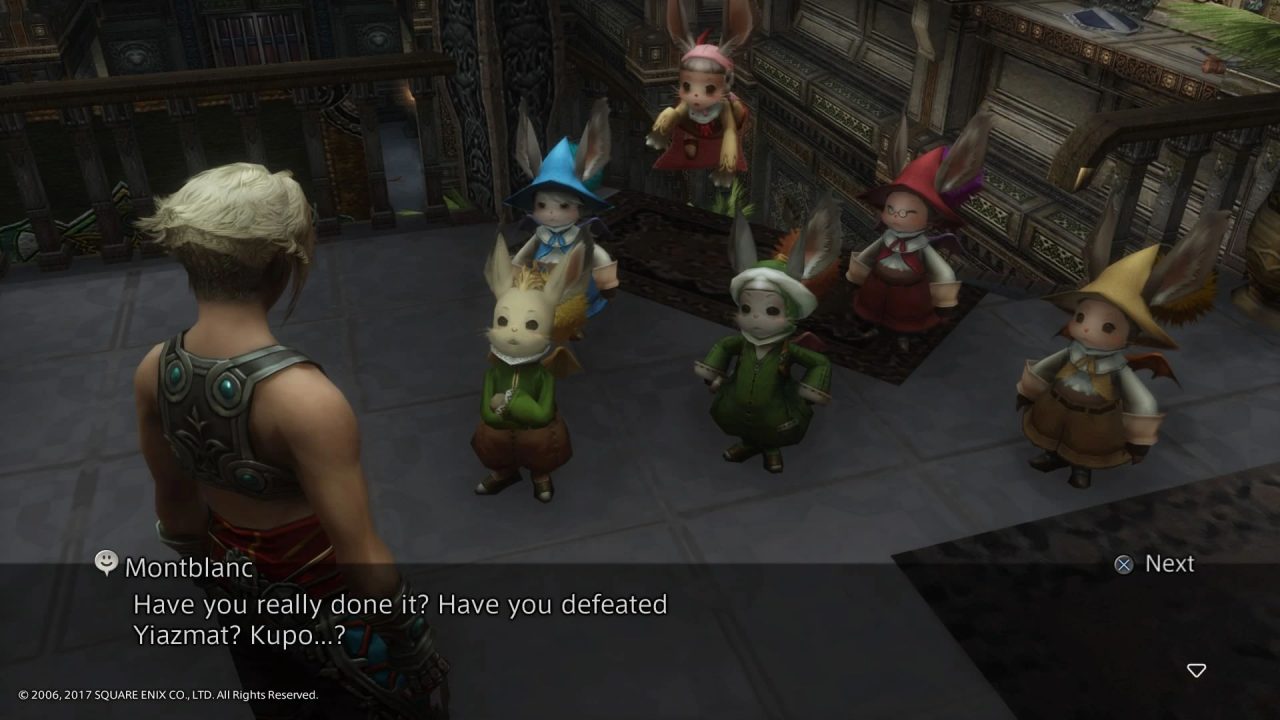
While moogle clans and families are plentiful across the Final Fantasy series, the six moogle siblings native to Ivalice are, in my opinion, the best. While the majority of players are most likely to interact with Montblanc through the Tactics Advance games, he is the founder of Clan Centurio and appears alongside his five siblings across Final Fantasy XII. Sorbet, Horne, Nono, Hurdy, and Gurdy all make themselves well-known, and because they are all such genuine delights, it’s difficult to pick a favourite!
What I love most about the moogle siblings is how they’re spread across the adventure, which lends a sense of continuity to the whole game. You may be far from home, but there’s floppy Gurdy working the chocobo ranch, or stylish Hurdy playing music as he wanders. Each of them have such well-developed personalities, and they charm me every time I traverse Ivalice. It’s just a shame that the siblings are limited to XII and haven’t appeared together in more games! C’mon Yoshi-P, give us the six siblings in Final Fantasy XIV, won’tcha?



